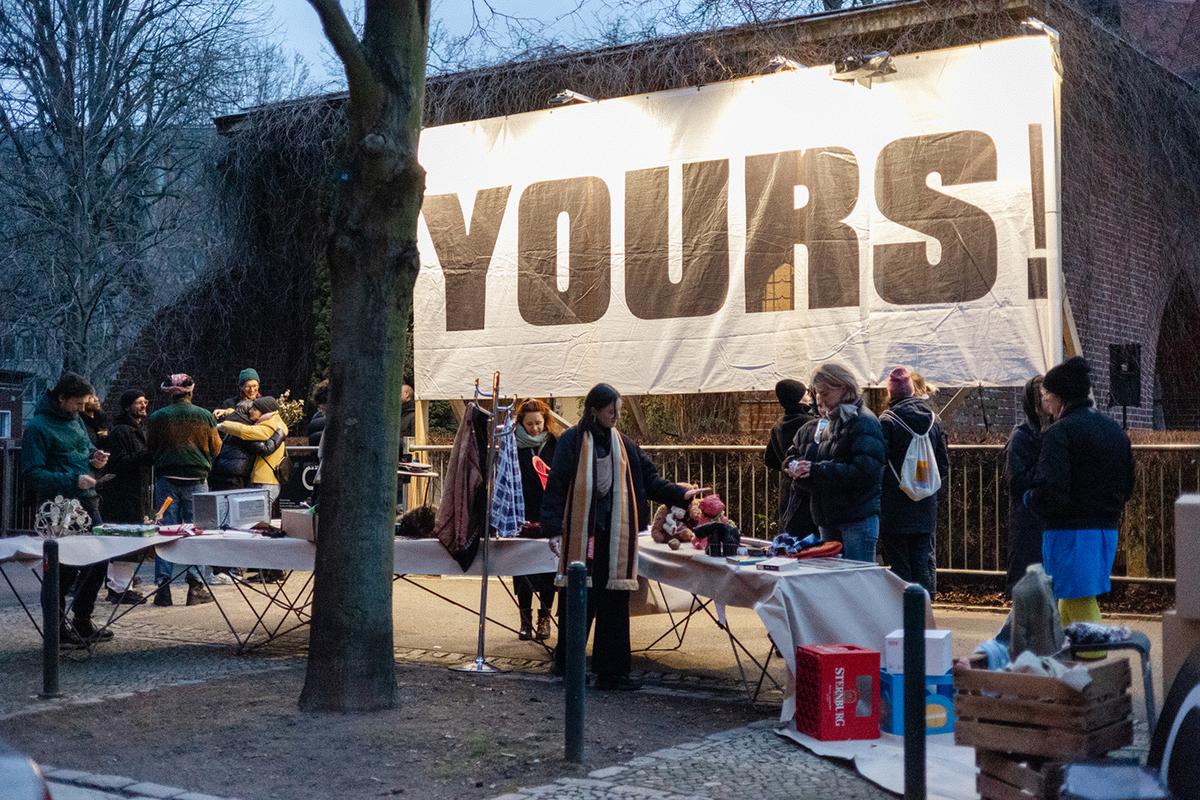2023/2024
Liminal Cities
Urban Life In-between
Faced by a multiplicity of global crises, urban life today has reached a tipping point. Most pressingly, an accelerating climate catastrophe calls for feasible social and ecological alternatives beyond western capitalist hegemony and its dependence on profit-oriented production and excessive mass consumption. Equally, the resurgence of military conflict in and beyond Europe combined with the worldwide renaissance of right-wing and fascist movements and parties ask for the active re-invention and creative re-appropriation of collective practices of solidarity across all domains of urban life. Finally, decades of neoliberal rule and entrenched globalisation have left behind deeply fragmented and highly individualised societies now reflected in a planetary urban landscape of unprecedented global interdependency. Situated at the crossroads of these and other current global challenges, today’s city emerges as a city in transition – a liminal city.
Originating in 20th-century European ethnography, the idea of liminality refers to an intermediate stage in rituals and rites of passage in which participants shed their old identities before having arrived at fully formed new ones (Varvarousis 2022: 24). Liminality, in this sense, opens up a space of political potentials, hope and fear, anxiety and anticipation. Turning its attention to sites of urban in-betweenness, this year’s theme wants to explore the city in its multiply liminal dimensions. Where does the liminal character of the contemporary city break to the surface most visibly? What does it mean to experience liminal in-betweenness on an individual, collective or even societal level? What, as a consequence, are the political potentials of liminal practices “from below” and where, in reverse, can we detect possible pitfalls, impasses and blind spots of liminal urbanism?
Varvarousis, Angelos. 2022. Liminal Commons: Modern Rituals of Transition in Greece. Bloomsbury.

Contributions

Master Theses
November 27, 2024
Ich wohne - ich entscheide - Untersuchung der Wohnpraktiken von Menschen mit kognitiven Beeinträchtigungen

Master Theses
November 27, 2024
Koproduktion als Potenzial - Partizipative Aktivierung der Hamburger Innenstadt

Master Theses
November 27, 2024
Memory citizenship - Sichtbarkeit Migrantischer Narrative im Urbanen Raum

Master Theses
November 27, 2024
Thanks for Caring - Einblicke in die Versorgungsnetzwerke für Menschen mit Demenz

Master Theses
November 27, 2024
Wurzeln schlagen - Den Boden in der Stadt zum Leben erwecken

Projects
September 30, 2024
Einkaufsbahnhof Altona

Events
July 22, 2024
Call for Participation: Interdisciplinary Summerschool ARC, UD, SP, KDM: „Beyond Stammtisch“ – Conceptualizing Rural Spaces of Commoning

Events
July 19, 2024
19/07/24 Alumni Reunion and UD summer party!

Events
June 27, 2024
27/06/24 “Future Visions : New urbanity & New architecture @ NYC, Istanbul, Moscow, Athens, and Izmir” lecture by Ayşe Şentürer

Events
June 17, 2024
17/06/24 Release Night: Die Schönsten Deutschen Bücher

Events
June 6, 2024
06/06/24 "Figurations of Finance and Freedom" lecture by Catherine Venart

Events
May 6, 2024
06/05/2024 Doppel-Buchvorstellung: Ruth Duma-Coman und Lena Enne im Gespräch mit Christian Berkes von botopress und Vertreter*innen von Roundabout e.V.

Everyday Urban Design
May 6, 2024
Everyday Urban Design 8. Anmeldung Not Possible: Das Scheinanmelden als Aspekt informeller Wohnpraxis in Berlin

Everyday Urban Design
May 5, 2024
Everyday Urban Design 7. Der Translokale Gebrauch des Urbanen. Städtische Arrangements in Comănești – Rumänien

Courses
April 1, 2024
DDTS 3 Ethics & Politics – Block Seminar Berlin 2024: Right to the City – Today

Courses
April 1, 2024
DDTS 3 Drawing Design Practice 2024
Courses
April 1, 2024
Methods, Tools, and Theory 7: Focus Methods (Colloquium) 2024
Courses
April 1, 2024
Methods, Tools, and Theory 8: Documentation (Colloquium) 2024
Transformations
April 1, 2024
Transformations II 2024

Urban Territories
April 1, 2024
Urban Territories II 2024

Atlas
March 31, 2024
Liminal Cities. Atlas 2023/2024

Projects
March 31, 2024
Kiosk, Ein Raum im Dazwischen

Projects
March 31, 2024
Working accumulating negotiating and dispersing

Events
March 14, 2024
14/03/2024 Final Presentations of UDP1&UDP3 23/24

Events
January 12, 2024
12/01/24 Liminal Cities: Excursion to Berlin

Events
December 14, 2023
14/12/23 "Socio-Spatial Mapping" Lecture by Larissa Fassler

Other Publications
December 13, 2023
Wohnen in Hamburg: Akteure, Instrumente und Konfliktfelder
Courses
November 7, 2023
Methods, Tools, and Theory 6: (Re)Assembling 2023/24

Courses
October 24, 2023
Project management UD 2023/24 - Vivo-Center

Urban Design Projects
October 19, 2023
Urban Design Project I 2023/24. Liminal Cities: Urban Life in-between

Urban Design Projects
October 19, 2023
Urban Design Project III 2023/24. Collective Insurgencies

Transformations
October 16, 2023
Transformations I 2023/24. Interdisciplinary Perspectives on Cities and Urban Processes- Lecture

Urban Territories
October 16, 2023
Urban Territories I 2023/24
